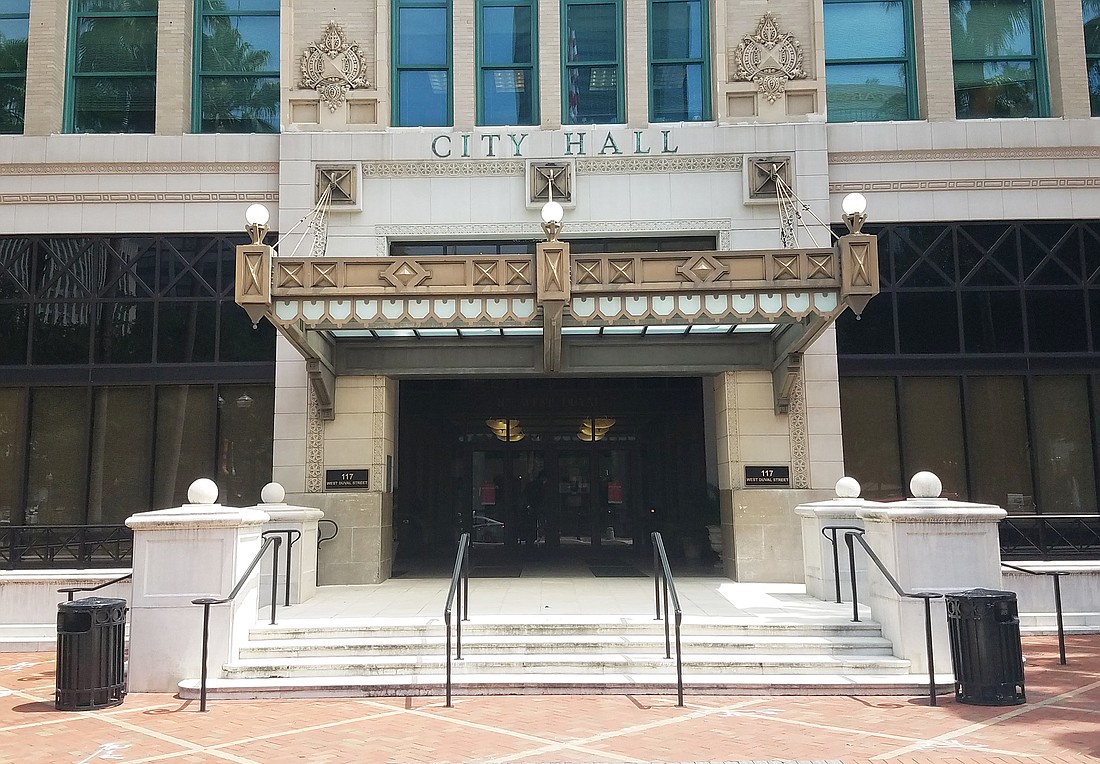
The Jacksonville City Council voted 17-1 on Sept. 28 to approve Mayor Lenny Curry’s $1.41 billion budget for the 2021-22 fiscal year.
The budget includes $507.71 million for the Jacksonville Sheriff’s Office, 36% of the total and a 3.64% increase from last year.
Council also approved $314 million for the Jacksonville Fire and Rescue Department, $50.37 million for the Public Works Department and $49.51 million for the Parks Recreation & Community Services Department.
Council also voted 17-1 to approve Curry’s $469 million 2021-22 Capital Improvement Plan.
The plan is $239 million more than the 2021 plan and is bolstered by $141.89 million from the federal American Rescue Plan.
The city will use $50 million of the federal funding to remove aging septic tanks and connect neighborhoods to the sewer system. Another $24 million will be used for road resurfacing.
There are more than 160 projects in the CIP. They include $36 million for the Jacksonville Jaguars’ $120 million city-owned football performance center adjacent to TIAA Bank Field. Council approved the project in August.
There also is $8 million to move the Jacksonville Fire and Rescue Museum to make way for Jaguars’ owner Shad Khan’s proposed Four Seasons hotel-anchored development at the Shipyards.
Other Capital Improvement Plan spending:
• $50 million for parks and quality of life investments to be determined by a special committee formed by Council President Sam Newby.
• $21.49 million to renovate and build fire stations.
• $15 million to relocate the Greater Jacksonville Agricultural Fairgrounds out of Downtown.
• $12 million to help the Museum of Science and History move from the Southbank to the Shipyards.
Efforts by Council member Rory Diamond to strip city funding from the Northeast Florida Regional Council and roll back the city’s millage rate, the basis for Duval County’s property tax bills, failed.
Even if the millage rate is flat, property owners can see their tax bills increase if the value of their property increases.
Diamond was the lone Council member to vote against the budget bills Sept. 28, but LeAnna Cumber, Kevin Carrico and Al Ferraro joined him in his argument to roll back the millage rate.
While Diamond’s plan would have rolled back the rate, it didn’t include budget cuts to pay for the $37,357,373 in expected lost revenue. Instead, it would have filled the deficit with city reserves.
Council Auditor Kim Taylor told Council members the reserve fund had $210 million as of September 2020 and expected it to be flat or higher when it was calculated again at the end of the 2020-21 fiscal year.
Joey Grieve, the Curry administration’s finance director, told Council member Randy DeFoor that pulling from the reserve account could cause a drop in the city’s bond rating and cost the city more money in interest on borrowed funds.
Council Finance Committee Chair Ron Salem, who led two weeks of budget hearings, said pulling from city reserves to pay for a millage rollback was a “terrible idea.”
All seven of Curry’s city budgets since 2015 have kept the millage rate flat.
The budget will go into effect Oct. 1.